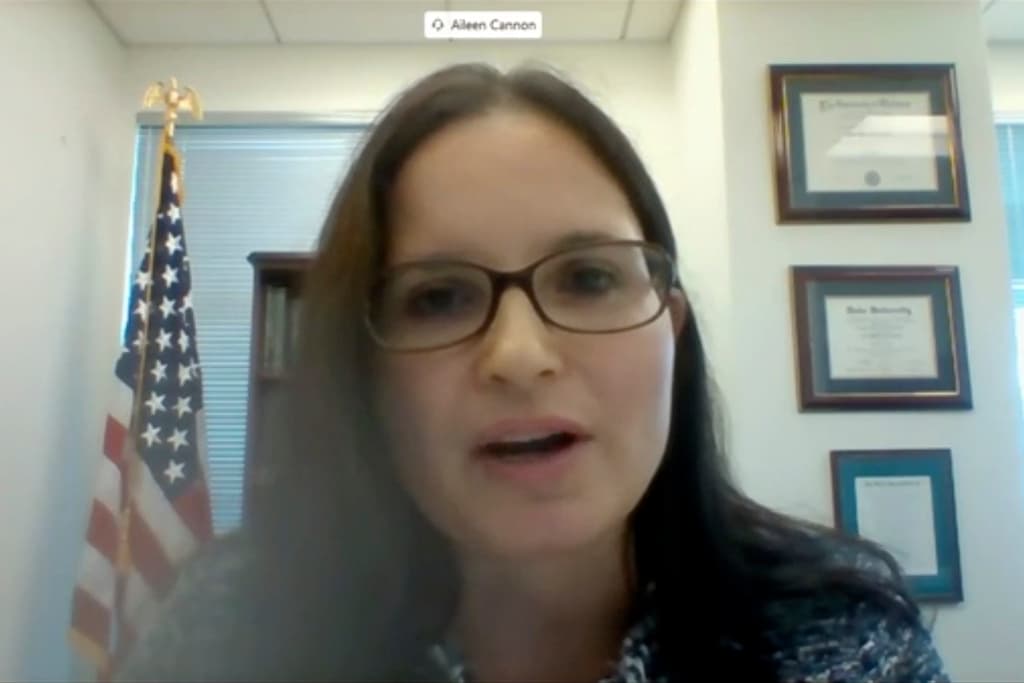Judge Cannon’s Duty
Amid reports of efforts to dissuade her off the Trump case, the jurist insists on doing her job.

What Judge Aileen Cannon lacks in experience she is making up for in gumption — and wisdom. In 2020, the jurist was named to the bench by President Trump. Last year she was assigned by lottery stewardship of his Mar-a-Lago case over how he handled classified documents. Now comes the Times to report that “two more experienced colleagues on the federal bench in Florida urged her to pass it up and hand it off to another jurist.”
Please check your email.
A verification code has been sent to
Didn't get a code? Click to resend.
To continue reading, please select:
Enter your email to read for FREE
Get 1 FREE article
Join the Sun for a PENNY A DAY
$0.01/day for 60 days
Cancel anytime
100% ad free experience
Unlimited article and commenting access
Full annual dues ($120) billed after 60 days

